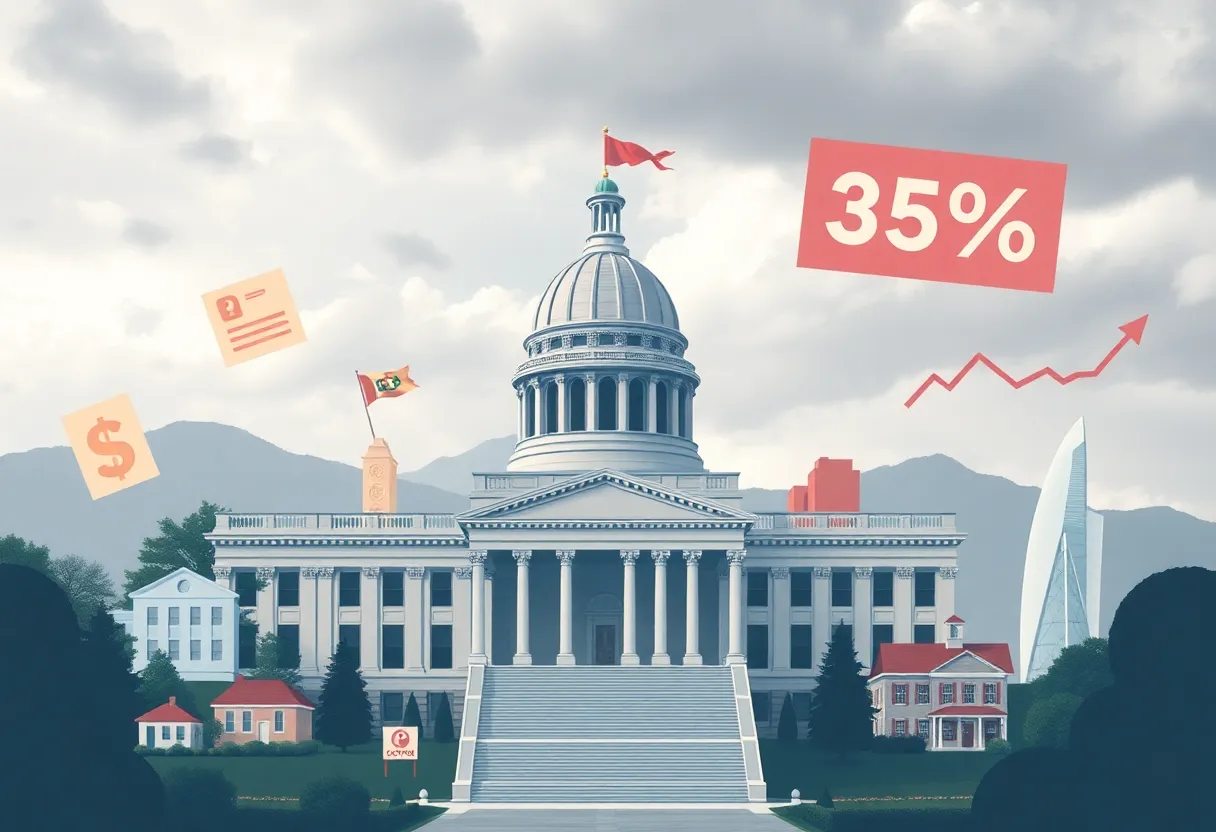News Summary
As California lawmakers begin the 2024-2025 legislative session, they face growing voter concerns about the rising cost of living. A recent UC Berkeley poll reveals that nearly half of voters feel worse off economically, with affordability issues top-of-mind. Legislative proposals from both Democratic and Republican lawmakers aim to tackle housing costs and utility bills, yet critics argue that more immediate action is needed. Amid heightened economic pessimism and shifting voter sentiments, the pressure on lawmakers to deliver effective solutions to economic challenges intensifies.
California lawmakers are grappling with growing voter pessimism as the rising cost of living remains a dominant issue in the legislative agenda. At the opening of the 2024-2025 legislative session, Assembly Speaker Robert Rivas emphasized the urgent need for legislative action to improve affordability across the state.
A recent poll conducted by the UC Berkeley Institute of Governmental Studies revealed that nearly 50% of California voters feel worse off than they did a year ago, while 54% express diminished hope regarding their economic future. In response to these concerns, the most pressing issues identified by voters include the cost of living, housing affordability, and homelessness, ranking above crime, public safety, taxes, and immigration.
Mark DiCamillo, the poll director, noted that the concern over the cost of living transcends political boundaries, garnering agreement among both Democratic and Republican voters. Economic pessimism has notably escalated since President Trump’s return to the White House in January, coinciding with new tariffs and federal budget cuts that have impacted consumer confidence.
Optimism among voters who identify as Democrats has plummeted, with positivity levels dropping from 46% before the presidential election to just 9% in April afterward. Similarly, voters with no party preference have become less optimistic, while Republican voter optimism has surged from 9% before the election to 57% after it. This stark contrast highlights the shifting sentiments within the state’s electorate regarding economic stability and growth.
The California Democratic Legislature and Governor Gavin Newsom have introduced several legislative proposals aimed at tackling the high cost of living. However, critics argue that these measures fall short and are slow to enact. Initiatives under consideration include legislation designed to save billions in utility costs, limit excessive rental fees, and streamline building permits. However, these proposals may not adequately address core economic drivers, such as housing prices and homelessness.
Republican lawmakers attribute the financial struggles facing California residents to years of unsuccessful Democratic policies and criticize the latest legislative efforts as insufficient. The economic environment has been further strained post-COVID-19, resulting in inflated prices for everyday necessities like food and energy, which have increased at a rate significantly higher than wage growth.
Since the onset of the pandemic, prices for food, beverages, and energy have surged by 28%, while wage increases have only nominally outpaced inflation—recording a reported 26% increase since January 2020, which translates to a real wage growth decline of 2.9% after accounting for inflation. California remains among the most expensive states for housing, with rental prices nearly 50% higher than the national median. As a result, one in six middle-class renters now allocates over half of their income to housing costs.
The soaring housing prices have intensified the homelessness crisis in California, prompting many residents to consider relocating to more affordable states. In the legislative session, a key piece of housing legislation, Senate Bill 677, failed, while Senate Bill 79, aimed at facilitating construction near transit stops, succeeded. In response to the ongoing crisis, Democratic-backed SB 681 seeks to address housing affordability through measures such as quadrupling the renter’s tax credit and banning hidden rental fees.
Additional proposals include significant reforms regarding utility costs, exemplified by SB 254, which requires the Public Utilities Commission to publicly justify any raised rates. Meanwhile, California Republicans have introduced their own solutions, including a bill proposing a 30% reduction in electricity rates and modifications to the renter’s tax credit.
Despite these legislative efforts, critics contend that the establishment of new committees to discuss housing and affordability represents a mismatch to the immediate, substantial actions required to alleviate the escalating living costs confronting California residents. As lawmakers move forward, the public’s demand for effective solutions to economic challenges intensifies, putting pressure on both parties to deliver meaningful results.
Deeper Dive: News & Info About This Topic
- CBS News: California Affordability Crisis
- Wikipedia: Cost of Living in California
- LA Times: California Affordability
- Google Search: California Affordability Crisis
- CalChamber: Cost Cutter Tax Credit Bill
- Encyclopedia Britannica: Housing
- Desert Sun: Starter Home Price in California
- Google News: California Housing Affordability








